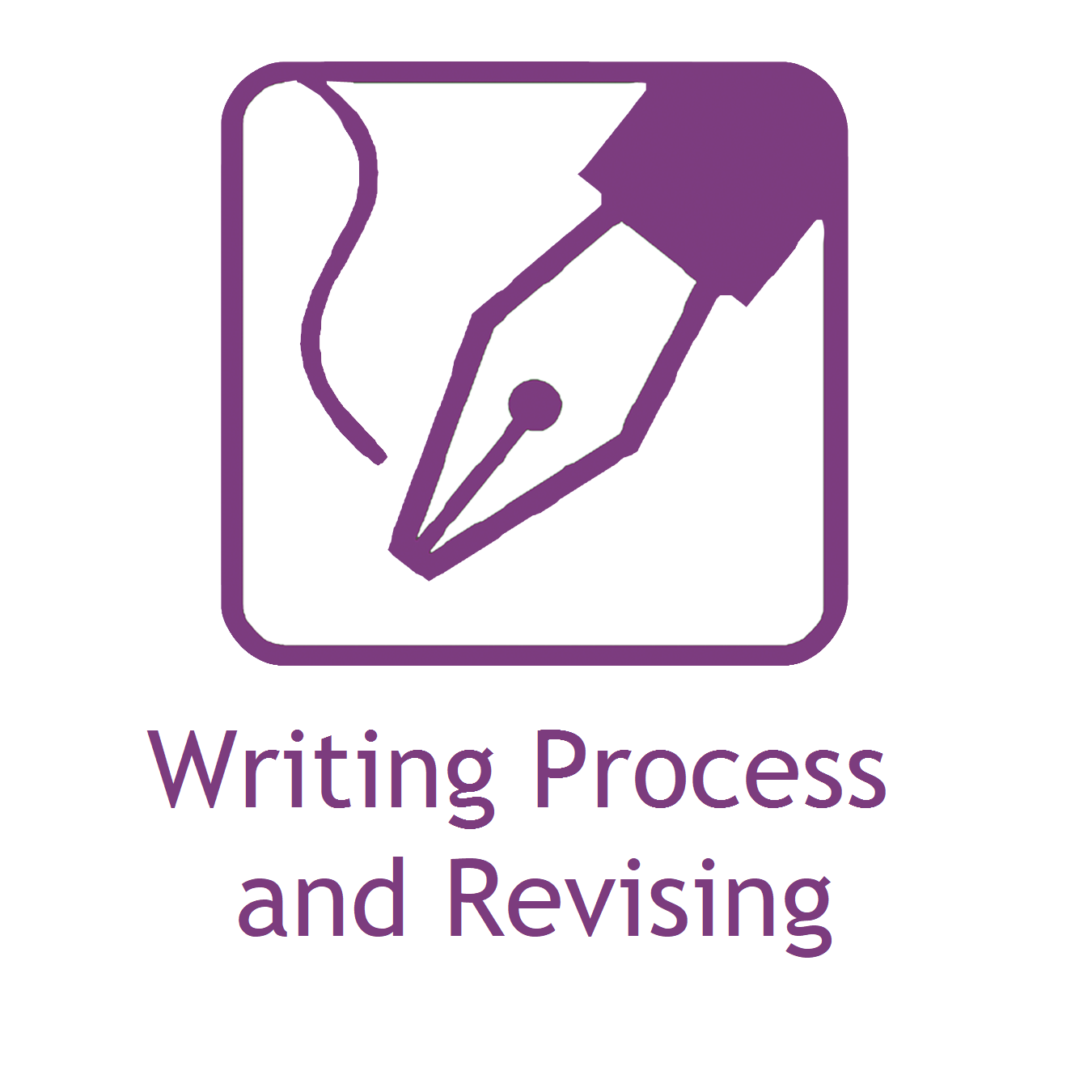Writing Process and Revising
The process of writing a research paper can seem daunting. However, there are a variety of strategies that can help ease the process and improve its results. Here we discuss approaches to the writing process, revising, and areas of focus in scientific writing.
The Writing Process: General Approaches
There are innumerable ways to write a research paper. These methods vary in terms of how much planning occurs prior to writing, which sections are written first, how much revising is performed, and so on. You may wish to try out a variety of different approaches before deciding which method works best for you. Some suggestions include (adapted from our Writing a Research Paper workshop):1,2
- Organizing your ideas first – brainstorm, try to come up with connections between ideas, and create an outline of what you intend to write. Consider the arguments you may wish to advance. If you have taken notes as you wrote your references (see Evaluating References and Taking Notes), you can use those notes to guide your brainstorming process. Your outline can also be structured according to APA guidelines (see Structuring a Research Paper).
- Words on the page / write and revise – first, just start writing. Your initial draft will almost certainly be far from perfect. However, just beginning the writing process can “jump start” your progress on the research paper. After the initial draft is complete, go back and revise. With this approach, like a sculptor, you will gradually hone in on a refined product – a well-written paper.
- Section by section – focus on writing one section at a time. In some cases, a relatively chronological approach (Introduction first, then Methods, Results, and so on) is preferred. In other cases, different sections are written out of order and then assembled together.
It can also be helpful to plan out a schedule of when you will be writing (for instance, 2-3 hours per day, in the mornings), as well as select a location where you feel comfortable writing (for instance, a quiet area in your favorite coffee shop). It is also often a good idea to take breaks between writing sessions (to stay fresh and to keep your creative juices flowing).
The Writing Process: Revising and Editing
After you have written a draft or your research paper, it is important to go back and read it carefully. As you read, consider ways to improve what you have written. Some approaches to revising and editing include:1,2
- Read the paper out loud – if any part of the text is difficult to speak or sounds unnatural, consider rewriting that portion. Although written prose and speech can be different (the former is often more formal), well-written research papers typically sound clear and convincing when read out loud.
- Ask someone else to read and provide feedback – have someone else look over your work with a pair of fresh eyes. If that person is not very familiar with the research or the topic, they can be especially helpful in spotting any areas that are unclear.
- Return to the draft after a break – when you are deeply enmeshed in writing a draft, your writing is reflected in your working memory. Thus, it can be helpful to step away from the draft and return to it after an extended period of time (such as several hours later or even after a day or two). With your memories of the draft “cleared”, you will be able to look at the draft from a fresher and more objective perspective.
Scientific Writing Standards
During the process of writing an initial draft, as well as revising and editing drafts, it is important to focus on aspects of good scientific writing. Areas to focus on include:1,2,3
- Accuracy and clarity – does the writing correctly convey background, design, results, and other information? Does it do so in a transparent and understandable way?
- Organization – does the writing follow a logical structure? Do different sections connect well with each other? Is the reader able to read from beginning to end without needing to skip around?
- Choice and consistency of wording – are properly descriptive and accurate terms used to refer to concepts, constructs, variables, procedures, and other details? Are they consistent throughout all sections of the paper?
- Concision – scientific writing favors an economy of words. Text that is concise (not too long), yet conveys all the necessary information, is ideal.
- Formatting – does the writing correctly obey the conventions of a scientific body (in this case, APA style)? Note that this includes not just organization but also citations and references.
- Grammar and spelling – does the writing obey the conventions of proper English grammar? Are all words (including scientific jargon terms) spelled correctly?
- Correctly attributing sources and quoting only as needed – All sources should be properly acknowledged. Direct quotes should only be used if there is something unique about the quote that makes it essential to be included. Moreover, it is typically inappropriate to quote large portions (i.e., more than a brief phrase or sentence) of text written by others.
Workshops and Downloadable Resources
Workshops
- For in-person discussion of the process of writing research papers, please consider attending this department’s “Writing Research Papers” workshop (for dates and times, please check the undergraduate workshops calendar).
Downloadable Resources
- How to Write APA Style Research Papers (a comprehensive guide) [PDF]
- Tips for Writing APA Style Research Papers (a brief summary) [PDF]
Further Resources
How-To Videos
External Resources
References
1Carver, L. (2014). Writing the research paper [Workshop].
2Lapidis, R. (2017). Writing a research paper [Workshop].
3Geller, E. (2018). How to write an APA-style research report. [Instructional Materials].
Graphic adapted from SchWett Kl 2a.svg with permission under Creative Commons Attribution-Share Alike 3.0 license.
Back to top
